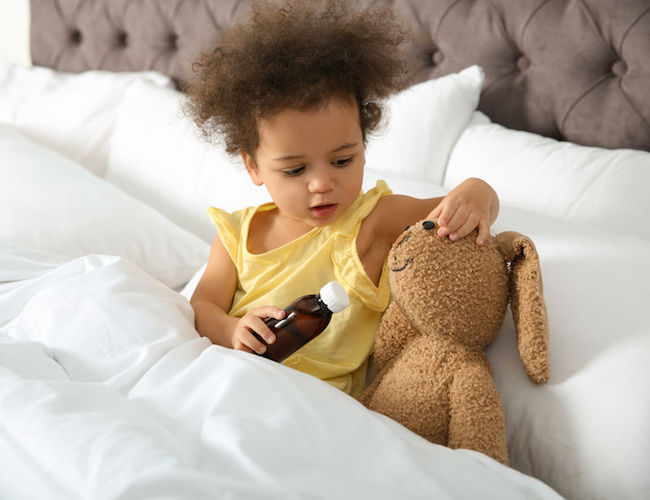How do you know if your baby is too sick to go to day care?
While it might seem like you’re constantly wiping your child’s runny nose, it’s not unusual for little ones to contract between 8 – 10 colds a year, especially if they’re at creche or day care.
In fact, according to a study published in JAMA Paediatrics, children who attend large day care centres have more frequent colds per year than those who are cared for at home.
However, the good news is, frequent exposure to viruses from a young age does help to build the immune system, which is why the study goes on to show that children had more of “the sniffles” as babies, contracted fewer colds by the time they reached age 6.
When do you need to keep your child at home?
If your child is in day care and you can see they’re feeling “under the weather”, how do you know when to call in a sick day?
Clicks nursing sister, Mpumi Mxuma says in general you should keep your child home if they have any of the following symptoms:
• A sore, inflamed throat. (If your child’s tonsils have white spots on them, it could be a sign of tonsillitis).
• A fever that’s above 37°C. (If it’s above 38°C, head to the doctor straight away)
• Sweating or shivering
• Low energy or lethargic
• Persistent coughing
• Red, watery eyes
• A runny nose where the phlegm is thick and yellow or green
If left untreated, these symptoms could lead to a more serious viral infection such as bronchitis or a bacterial infection such as strep throat or tonsillitis. For this reason, it’s best to keep your child home and take them to the doctor if the symptoms haven’t improved within a day or two.
Keep an eye on runny noses
If your child suffers from allergies or hay fever, there’s a good chance they often have a runny nose, with clear discharge. While this isn’t initially a sign of infection, allergies can lead to sinus infections as the nasal passages become inflamed, which can block the mucus from draining effectively.
It’s best to manage your child’s allergies with the right medication, prescribed by your GP or paediatrician.
To prevent the spread of colds and flu, sister Mpumi believes suggests that you:
• Wash and sanitise your child’s hands regularly. Most viruses and bacteria are spread through hand to mouth contact, after your child has touched surfaces or shared toys or food- and put them in their mouth.
• Keep up to date with your little one’s immunisations and booster shots. You can have these done at a Clicks Well Baby Clinic.
• Don’t allow strangers to kiss your child. Some bacteria, such as strep throat – can be spread through kisses and mouth contact.
IMAGE CREDIT: 123rf.com



